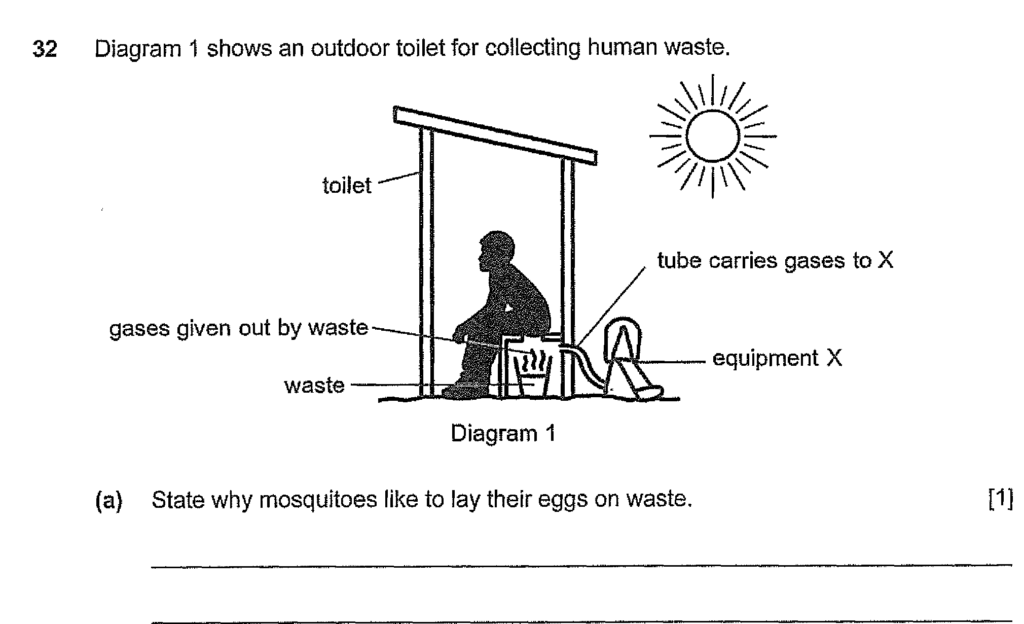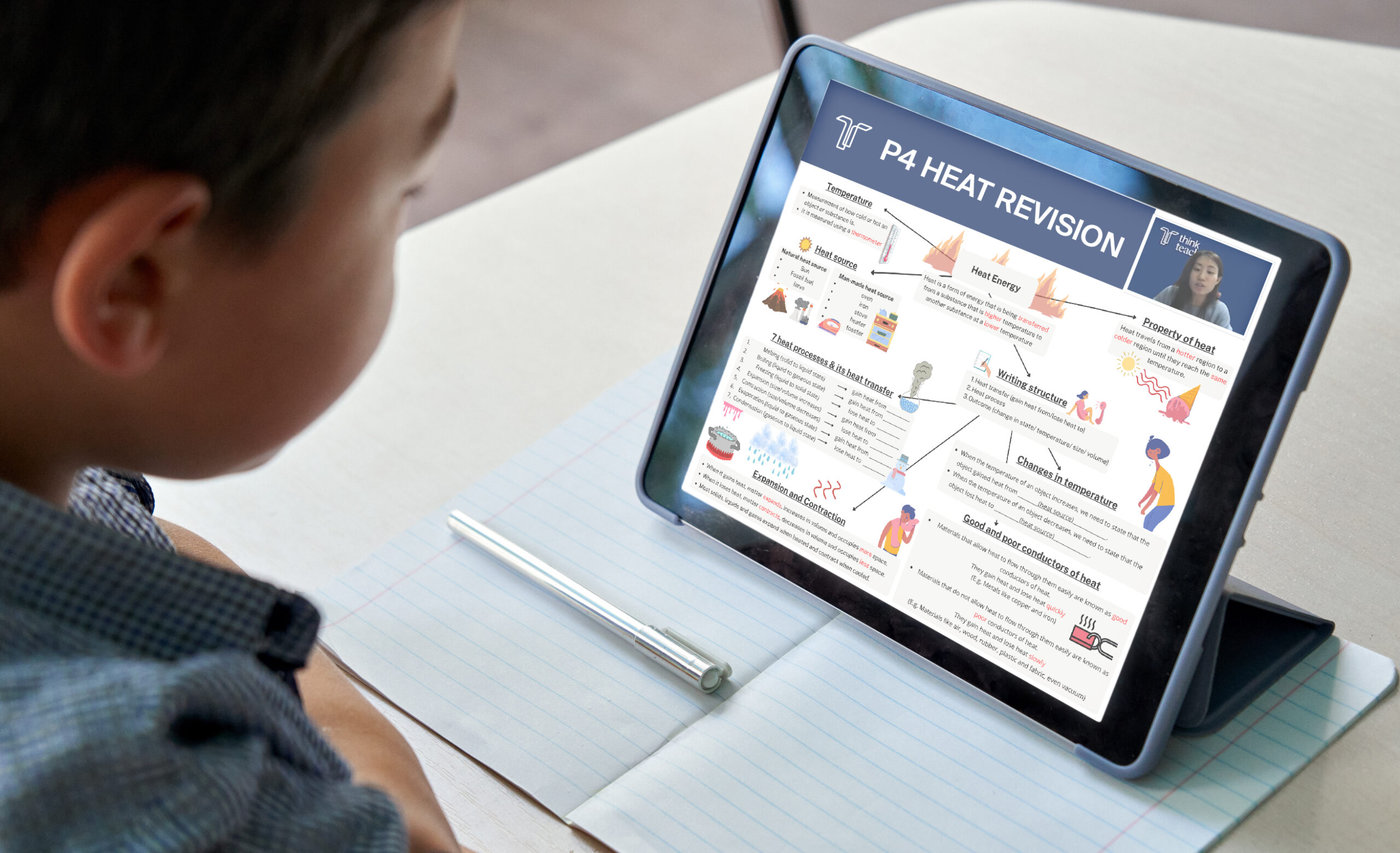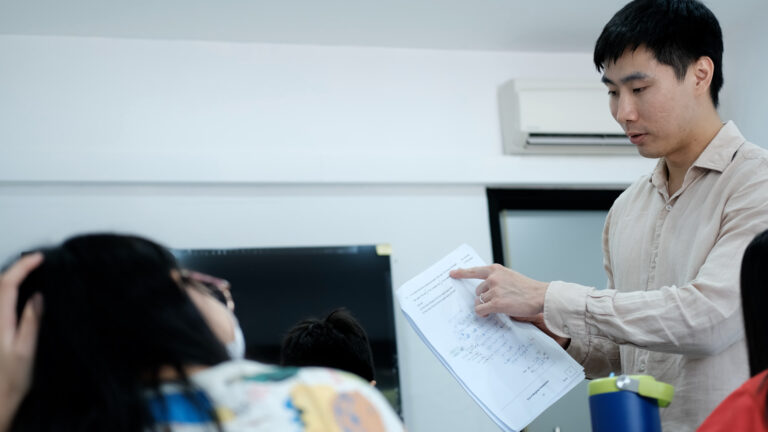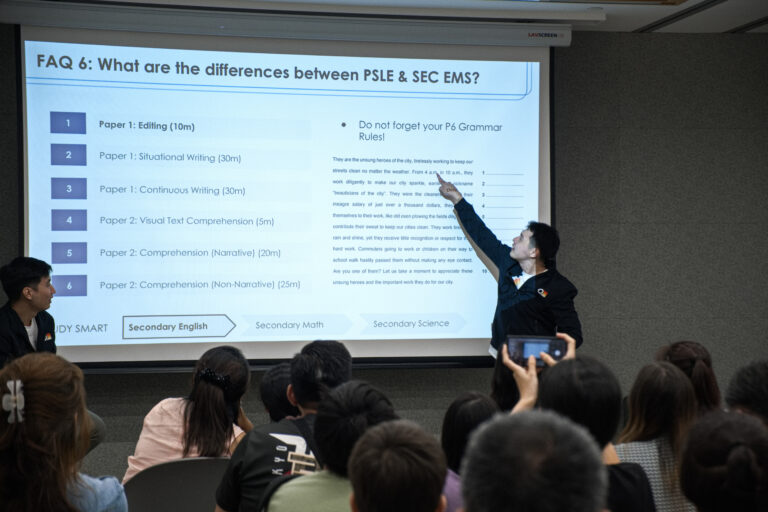Navigating the PSLE Science paper can often feel like deciphering a complex code. Students and parents alike understand the importance of precision in crafting answers, and MOE’s emphasis on keywords may seem like a hurdle. However, there’s a deeper rationale behind this approach. At its core, the Science curriculum aims to ignite curiosity and interest in the world around us. It’s not about rote memorisation of keywords but rather understanding the underlying scientific concepts.
1. Precision in Communication: The Language of Primary School Science
Clear and precise communication is fundamental in the field of science. Keywords serve as signposts of comprehension, indicating that a student grasps the essence of a topic. By requiring specific keywords, MOE ensures that students can articulate their understanding accurately. Using the correct terminology reflects a deeper comprehension of the subject matter. Just as scientists adhere to specific protocols in their research, students are encouraged to communicate effectively using the language of science.
For instance, when exploring the topic on Heat & its Temperature, distinguishing between terms like “gain heat” and “lose heat”, helps students articulate their observations more accurately. Understanding these distinctions is crucial for comprehending concepts such as melting, freezing, and evaporation. MOE ensures that primary school students develop a strong foundation in scientific vocabulary. To further emphasise the use of precise scientific language, TTA provide mindmaps at the end of the topic to reiterate the meaning and importance in the usage of keywords. This not only aids their performance in assessments but also lays the groundwork for more advanced scientific learning in the future, fostering a deeper understanding of the natural world.
2. Bridging Disciplines through Scientific Specificity
Science is a vast and interconnected web of knowledge. The requirement for keywords is about scientific specificity. Keywords serve as bridges between different fields of study, facilitating interdisciplinary connections. Just as scientists adhere to specific protocols in their research, students are encouraged to use precise terminology in their responses.
With reference to the same example of the application of Heat Energy, instead of saying “colder temperature,” the term “lower temperature” accurately represents the scientific concept of temperature as a measure of hotness and coldness. This adherence to discipline-specific terminology cultivates a deeper understanding of scientific principles and fosters interdisciplinary connections essential for navigating the complexities of modern science. By familiarising students with scientific terminology, MOE equips them with the tools to navigate and contribute to various branches of science.
3. Cultivating Critical Thinking: Nurturing Inquiry in Primary School Science
Beyond preparing students for specific careers, science education fosters critical thinking skills and logical reasoning skills that are invaluable in any field. Everyday phenomena, like condensation on spectacles or temperature differentials in cooking, provide tangible examples for students to apply scientific principles. This higher order thinking allows them to apply these concepts flexibly, even in unfamiliar contexts.

For instance, there was a question on “a cold turkey” tested in the recent 2022 PSLE paper. The cold turkey was placed in an oven which had a temperature of 160˚C. After 2 hours, a thermometer was inserted into the turkey to measure its temperature. The temperature showed that it was lower than 160˚C. Students were asked to explain why the temperature of the turkey is not the same as the temperature of the oven even after the turkey was placed in the oven for 2 hours?
This question is an uncommon one as students are usually tested on the heat conductivity of metal or air and not the heat conductivity on a meat.

Another question that threw students off by the unusual diagrams and information would be the mosquitoes which laid eggs in human waste. Why are mosquitoes attracted to human waste and lay eggs on it? Every question asked following that required students to make inferences from the real world and they must employ their skills in analysing questions to make connections with what they already know. This form of experiential learning encourages students to think analytically, problem-solve, and make informed decisions—a vital aspect of lifelong learning.
4. Facilitating Further Exploration
Keywords also play a crucial role in facilitating further exploration and research. By providing a common language, they enable students to conduct web-based searches and access additional materials. This not only enriches their understanding but also encourages independent inquiry and self-directed learning. For instance, the article below showcases the supertrees in Gardens By The Bay as well as how it uses energy conversion to power itself during the night.
This level of discipline has been ongoing at the primary level given the rise of real life application questions. It is crucial that a student starts to be exposed to real world situations to increase awareness and how their existing knowledge can be applied to the real world. By incorporating current articles to not only spark students’ interest and also discover what’s around us in the world, we encourage an environment for students to ask questions and discuss how the topic is applicable to the situation.
In essence, MOE’s emphasis on keywords for PSLE Science goes beyond mere exam requirements. It’s about nurturing a generation of scientifically literate individuals who can think critically, communicate effectively, and contribute meaningfully to the ever-evolving world of science. So, while the path to mastering PSLE Science may seem daunting, it’s ultimately a journey of discovery and understanding—one where keywords unlock the door to a universe of scientific inquiry and exploration.
This article was proudly written by TTA’s Science Team. We aim to help students achieve exam excellence in Science with our signature templated answering structures which will help your child tackle with ease and confidence even the hardest of science questions



